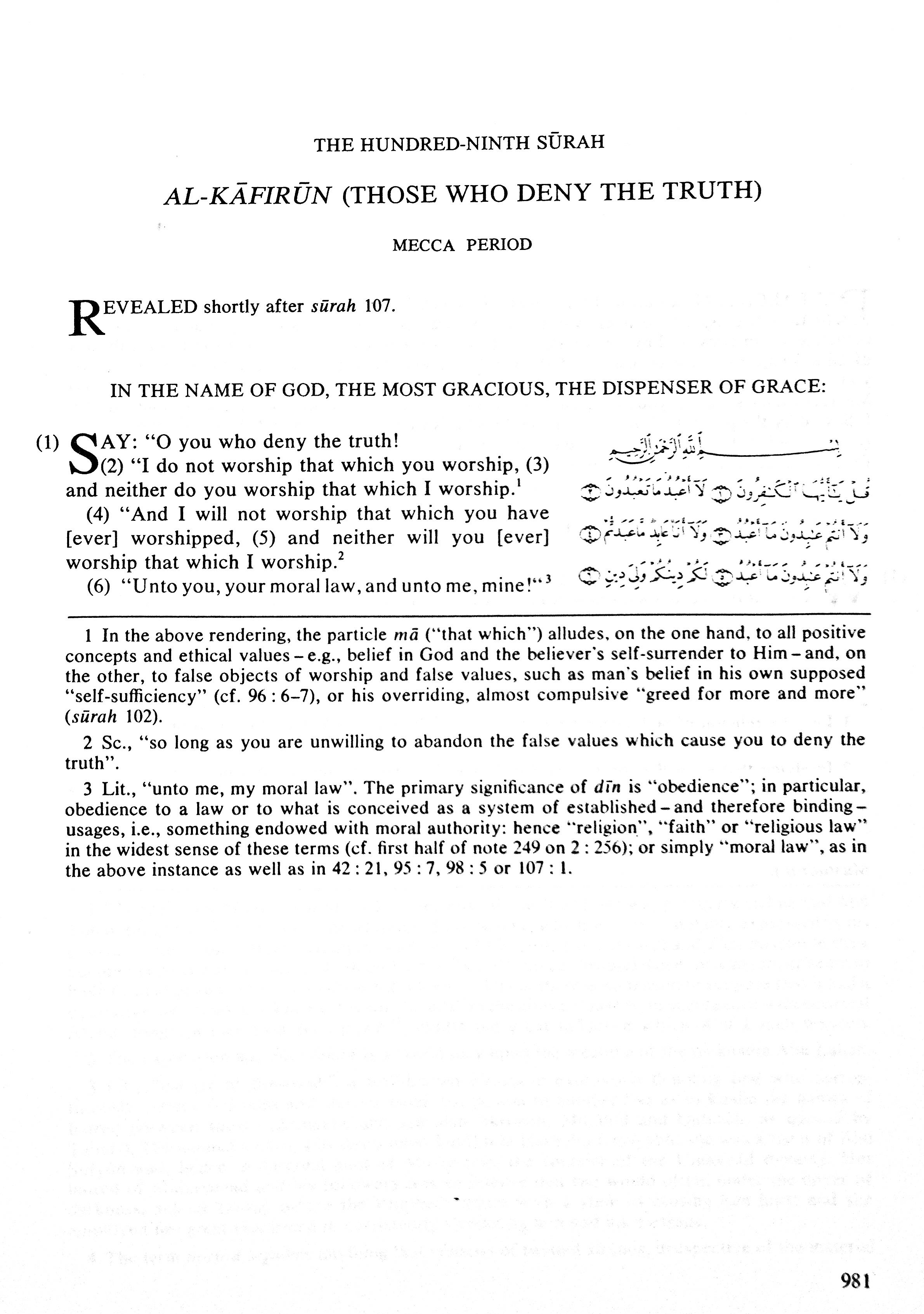Muhammad Asad, The Message of the Qur’ān; Translated and Explained by Muhammad Asad (1980)
Al-Kāfirūn (Those Who Deny The Truth)
Revealed shortly after sūrah 107.
(1) SAY: “O you who deny the truth!
(2) “I do not worship that which you worship, (3) and neither do you worship that which I worship.1
(4) “And I will not worship that which you have [ever] worshipped, (5) and neither will you [ever] worship that which I worship.2
(6) “Unto you, your moral law, and unto me, mine!”3
1 In the above rendering, the particle mā (“that which”) alludes, on the one hand, to all positive concepts and ethical values – e.g., belief in God and the believer’s self-surrender to Him – and, on the other, to false objects of worship and false values, such as man’s belief in his own supposed “self-sufficiency” (cf. 96:6–7), or his overriding, almost compulsive “greed for more and more” (sūrah 102).
2 Sc., “so long as you are unwilling to abandon the false values which cause you to deny the truth”.
3 Lit., “unto me, my moral law”. The primary significance of dīn is “obedience”; in particular, obedience to a law or to what is conceived as a system of established – and therefore binding – usages, i.e., something endowed with moral authority: hence “religion”, "faith” or “religious law” in the widest sense of these terms (cf. first half of note 249 on 2:256); or simply “moral law”, as in the above instance as well as in 42:21, 95:7, 98:5 or 107:1.
